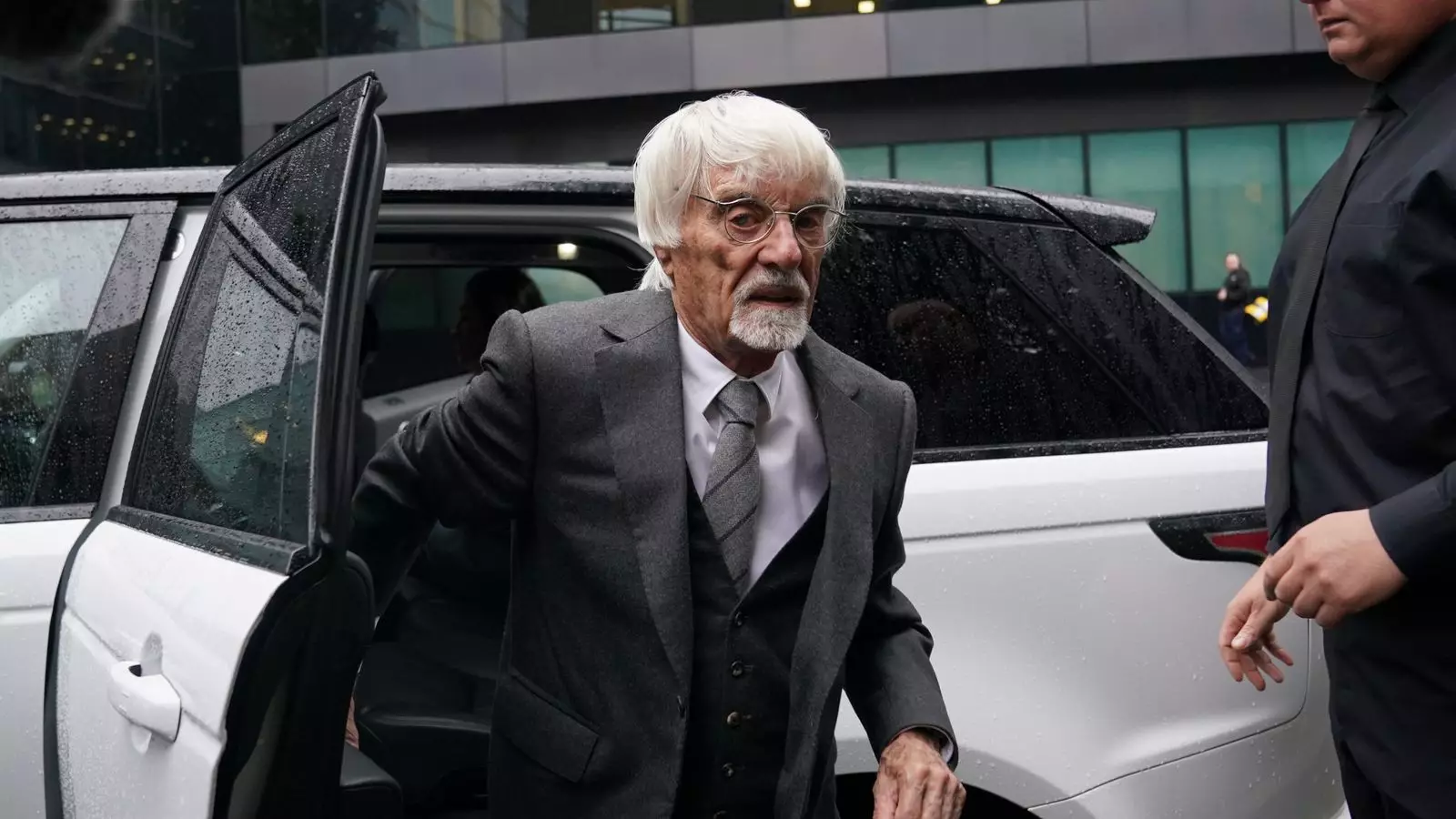Formula One’s former leader, Bernie Ecclestone, has recently pleaded guilty to a fraud charge regarding the concealment of £400 million held in a trust in Singapore from the UK government. Expected to face trial this November, Ecclestone had previously denied the allegations. However, during his appearance at Southwark Crown Court, accompanied by his wife, Fabiana Flosi, the billionaire admitted to a single count of fraud on July 7, 2015.
It was revealed in court that Ecclestone had already reached a civil settlement with HM Revenue and Customs (HMRC). This agreement requires him to pay a staggering £652.6 million covering 18 tax years by October 9. The investigation by HMRC into Ecclestone’s finances revealed his failure to disclose a trust in Singapore, including a bank account holding approximately $650 million US dollars, equivalent to about £400 million at the time.
Prosecutors presented evidence that Ecclestone made untrue or misleading representations to HMRC during their meeting in July 2015. Specifically, when asked if he had any connections to additional trusts, Ecclestone answered “no.” However, it has been established in court that he did indeed have links to further trusts, both within and outside the UK. The prosecutor, Richard Wright KC, argued that Ecclestone knew his response was untrue or misleading and thus demonstrated his awareness of its consequences.
The Lack of Clarity
During the trial, it was revealed that Ecclestone lacked clarity regarding the ownership structure of the accounts in question and consequently was uncertain about tax liability, interest, or penalties related to the funds passing through the accounts. The prosecutor emphasized that Ecclestone’s lack of knowledge does not absolve him of the responsibility to provide accurate information. It was also acknowledged that Ecclestone recognized the incorrectness of his answers and their potential impact on the investigation. He now admits that he owes some tax in relation to these matters.
Ecclestone’s decision to bring the investigation to an end helped him save approximately £100,000 in fees. However, as argued by prosecutor Richard Wright KC, the exposure of his deceit resulted in significant expenditures on legal fees, leading to a potential nullification of any actual savings. The defense attorney, Clare Montgomery KC, emphasized Ecclestone’s remorse, stating that he “bitterly regrets” the events that led to his prosecution. Montgomery argued that Ecclestone had no intention of avoiding tax payments and that his non-disclosure was nothing more than an “impulsive lapse of judgment.”
The Toll on Ecclestone’s Health
Clare Montgomery KC further emphasized the toll the proceedings had taken on Ecclestone’s health and the immense stress that he and his loved ones had experienced. These factors are crucial in understanding the impact of the legal battle on an individual already in frail health.
The guilty plea of Bernie Ecclestone in the fraud case highlights the consequences of his failure to disclose substantial funds in a trust in Singapore. Despite his lack of clarity and understanding, Ecclestone’s misleading or untrue representations to HMRC have resulted in a significant financial burden and legal proceedings. As the trial continues, the implications and potential penalties for Ecclestone remain uncertain.


Leave a Reply